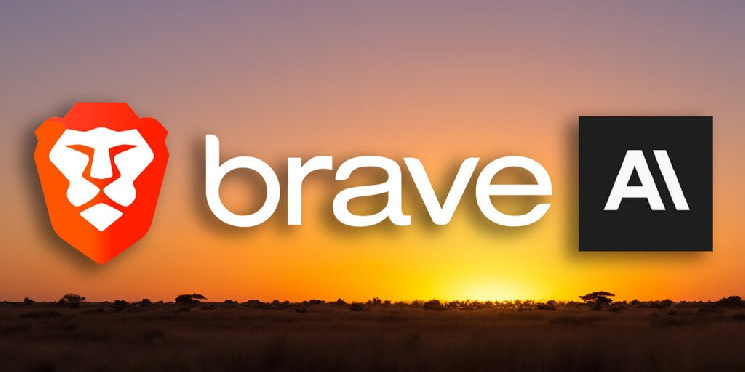The makers of the privacy-focused Internet browser Brave join a litany of crypto-friendly companies jumping on board the AI movement with the launch of Leo, a generative AI tool that uses Anthropic’s AI model. Leo is available today in the Brave Browser for desktop, with a mobile version coming soon.
According to Brave, Leo can translate, analyze and rewrite pages, giving the popular browser more AI functionality. Brave has already added an AI feature called the Summarizer, which runs within Brave Search to provide relevant and concise answers.
“We tested several systems, and Anthropic was the best fit for this initial release due to their speed and advanced conversation skills,” said Brave CTO and co-founder Brian Bondy. Declutteradding that Anthropic used Brave’s Search API to train and optimize their latest model, Claude 2.
Leo, Bondy said, is built with flexibility in mind and allows for different models to be used. With Leo Premium on a $15 monthly subscription basis, Brave users have access to Claude Instant and Meta’s Llama 2 70B, for starters.
“We believe that over time more models will be offered and users should be able to choose between them,” Bondy said.
OpenAI’s ChatGPT now searches the web in real time again
Bondy said Leo is more than a simple chat interface: It’s also a companion that helps understand the internet and works without recording user chats or using user input to train the AI model.
“Leo ‘understands’ the current page you’re visiting; talking directly to the author is the best thing you can do,” Bondy said. “Leo can analyze and reason about pages independently, without prejudice from the author.”
As Bondy explained, Leo can also analyze pages behind firewalls, paywalls, and otherwise unavailable content.
In September, ChatGPT maker OpenAI announced the return of its “Browse with Bing” feature after removing the feature earlier this year after it was discovered that ChatGPT Plus subscribers were using the feature to bypass paywalls.
Bondy said Leo prioritizes user privacy: conversations are not stored and input is anonymous, adding that no logins are required and premium subscriptions cannot be linked. To prevent abuse, Bondy says, Leo censors harmful comments and will refuse to reply to what is considered illegal or dangerous under Anthropic and Brave’s policies.
Meta says the AI training mainly used public social media posts
Experts have long warned that generative AI has a habit of making up facts, known as hallucinations, and responding with answers that could promote eating disorders and even help plan a biological terrorist attack.
Future improvements, Bondy said, include exploring how Leo can integrate with Brave Rewards and a recommendation engine, connecting Leo’s responses to highlighted keywords to Brave Search, integrating Leo with Brave Wallet for Web3 queries, and connecting to Brave News for improved content management.
“This shows how the browser as a user agent and super app is the ultimate platform for AI,” he said.
The proliferation of AI models in the market has been compared to an arms race with AI developers and investors pushing for the dominant name in mainstream AI. Technology giants Microsoft, Google and Amazon have jointly spent several billions on generative AI in the past year.
As OpenAI’s ChatGPT has become the standard by which AI chatbots are measured, investors have started pouring money into Anthropic, perhaps its biggest rival. In September, Amazon announced a $4 billion investment in Anthropic; This was followed in October by Google upping its bet on Anthropic with a $2 billion investment in the AI developer.

